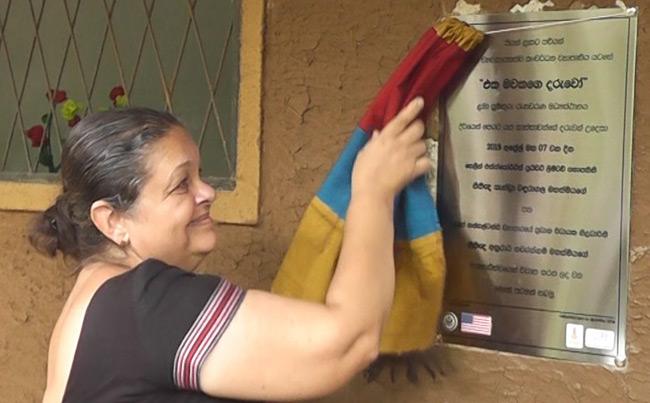
There is a new trend in the global business world. Companies that were doing CSR projects to enhance image are now embedding sustainability and fair trade practices into corporate strategy to differentiate and succeed.
‘Selyn Handlooms’ and ‘Life’ are two organisations that seek to empower communities in Sri Lanka and make a paradigm change and work towards incorporating sustainability for the benefit of the business and the nation.
Life and Selyn Handlooms partnered on a community project named the ‘100 Hands Initiative’ in 2016, to introduce sustainability initiatives.
The ‘100 Hands Initiative’ is the brainchild of the Business Development Director of Selyn Handlooms, Selyna Peiris and Life’s Founding Partner Anuradhi Navaratnam, where a casual conversation turned into a committed effort at launching a project to support Selyn’s ongoing practice of empowering rural women by providing employment with a holistic approach.
Peiris and Navaratnam, both alumni of the US State Department’s International Visitor Leadership Programme (IVLP) submitted the ‘100 Hands initiative’ as a proposal to obtain sponsorship from the ‘Alumni Engagement Innovation Fund’ in 2016 and was one of the projects that was selected from over 800 global submissions.
The initiative recognised the need of economically marginalised women who seek employment overseas as unskilled labour which appears as the only available option. However, some of the less fortunate women who go abroad in search of greener pastures return disillusioned, often having been subjected to abuse and exploitation.
The project focused its activities in the Kurunegala district which has one of the highest number of female migrant workers. “Many of these women seek work overseas to feed their families, educate their children and to compensate for alcoholic husbands that do not provide adequately to maintain the family,” explained Navaratnam.
‘100 Hands’ paved the way for women to receive training in skills such as handloom weaving and sewing that lead to employment at Selyn Handlooms, a fair trade guaranteed handloom company which provides employment and nurtures 1,000 women.
Creating livelihood opportunities for selected women with training on entrepreneurship skills, financial management, life skills and the health and well-being of their families ensured that their overall lives significantly improved.
100 Hands focused not only on giving them employment but empowered them with the necessary life skills, equipping them to realise their full potential. The project also partnered with Sanasa Development Bank to offer financial management training and banking assistance to the women in the program.
“If you really want to empower and provide rural women with employment opportunities, flexible working hours should be provided considering their family commitments and with other social and technical skills to build their motivation and positive attitude.
